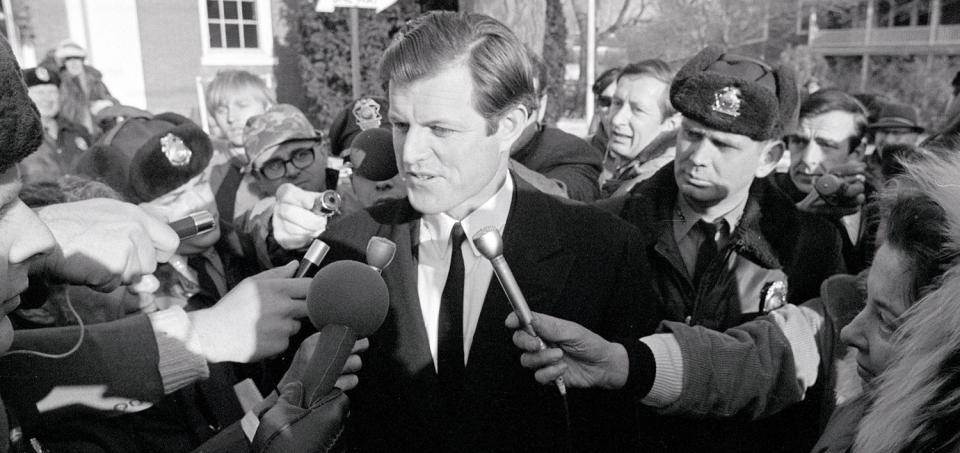Cover-Up Episode 5: Swept Under the Rug
➜ Cover-Up Episode 1: 10 Hours Later
➜ Cover-Up Episode 2: Joey’ll Fix It
➜ Cover-Up Episode 3: The Family Code
➜ Cover-Up Episode 4: The Secret Keepers
➜ Cover-Up Episode 6: Ye Shall Seek The Truth
➜ Cover-Up Episode 7: The Letter

On July 18, 1969, Sen. Ted Kennedy’s car crashed off a small bridge on the tiny Massachusetts island of Chappaquiddick and plunged into the dark waters below, killing 28-year-old passenger and political aide Mary Jo Kopechne. Now the tragic car accident is the subject of Cover-Up, a weekly podcast series from People, exploring the unanswered questions surrounding that fateful night.
The enduring mystery stems in part from the fact that no autopsy was ever performed on Kopechne’s body.
Her body was flown off the island on Sunday, July 20, after a Martha’s Vineyard associate medical examiner ruled that she’d drowned and said an autopsy was unnecessary.
But many remained skeptical — and some argued that she could possibly have been saved if Kennedy hadn’t waited 10 hours to notify the police.
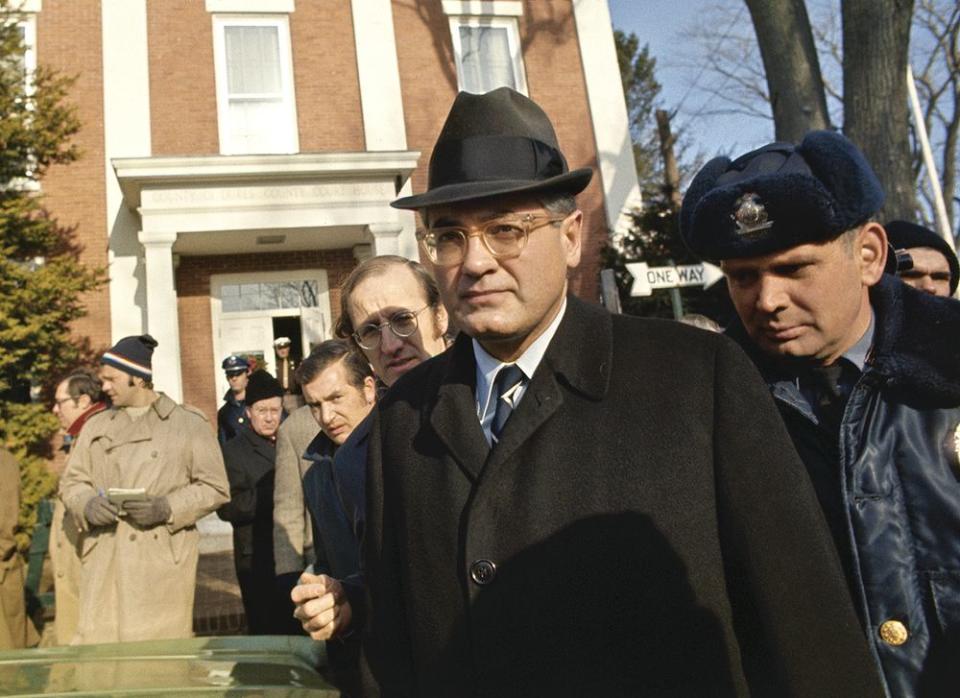
District Attorney Edmund Dinis (pictured above) later sought to have Kopechne’s body exhumed for an autopsy, a request that was opposed by Kennedy’s camp and initially by Kopechne’s parents, who didn’t understand that an autopsy would answer when and exactly how she died. Kopechne’s cousin, Georgetta Potoski, says Kopechne’s parents later regretted their opposition as “the biggest mistake they ever made.”
To share your thoughts and theories on the case, join our Facebook group
To this day, Cyril Wecht, a well-known forensic pathologist who consulted on the case, is shocked there was no autopsy.
“I frankly was just amazed and extremely puzzled that no autopsy had been done. … The case was botched by virtue of the fact that an autopsy was not done,” he says in episode 5 of the podcast, out now.
An inquest to investigate the circumstances surrounding Kopechne’s death began in January 1970, six months after the accident. It was the only time the people who attended a reunion party with Kennedy and Kopechne on the night of her death would be compelled to testify. And it is the only official record that exists of what happened that night.
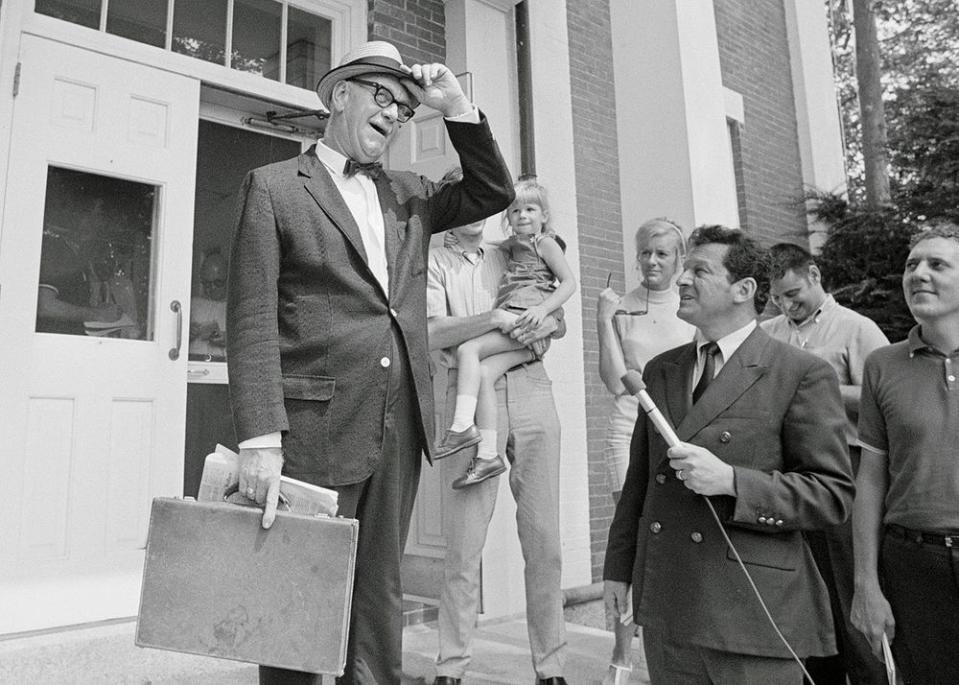
John Farrar, the diver who pulled Kopechne’s body out of the car, said she was found in “a consciously assumed position,” which Wecht says indicates that she did not drown immediately and was struggling for her final breaths.
When Farrar later testified to this on the witness stand, he recalls that the judge, James Boyle (pictured above), told the court recorder to rip up that part of Farrar’s statement.
“I was cut off in the inquest because Boyle did not want to hear anything from me about the fact that she breathed,” Farrar says in the episode. “Even though I had absolute proof that she breathed underwater, he didn’t want to hear it.”
Rosemary Keogh, one of the five women (in pictures below) who attended the reunion party that night, told the Boston Globe five years later: “As far as I’m concerned, there’s only person who really knows what happened from the beginning of the incident to the end and that’s Ted Kennedy.”
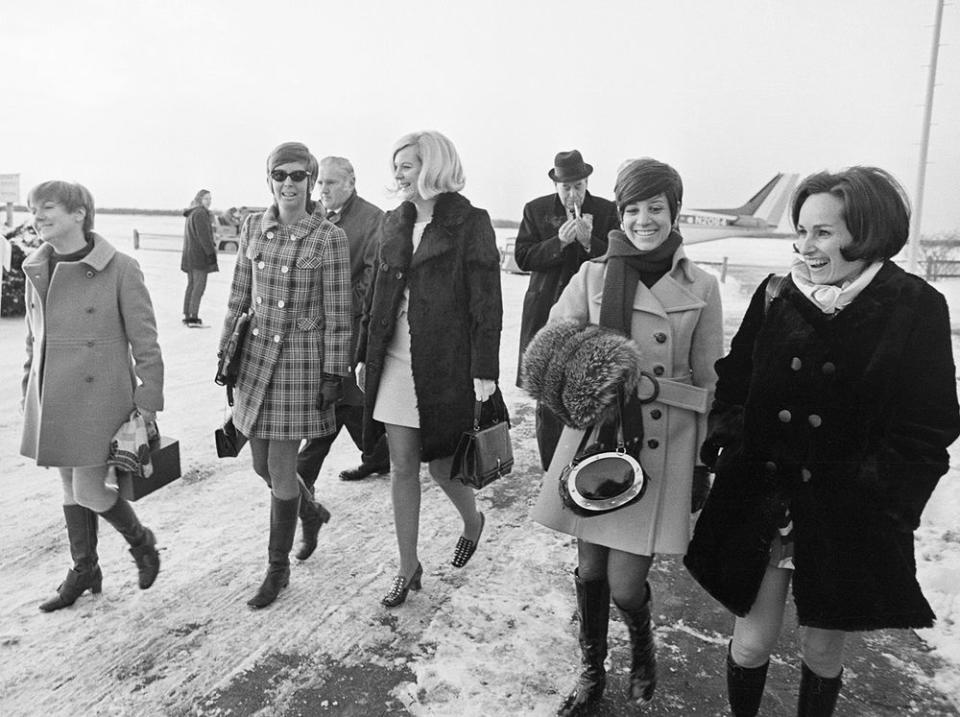
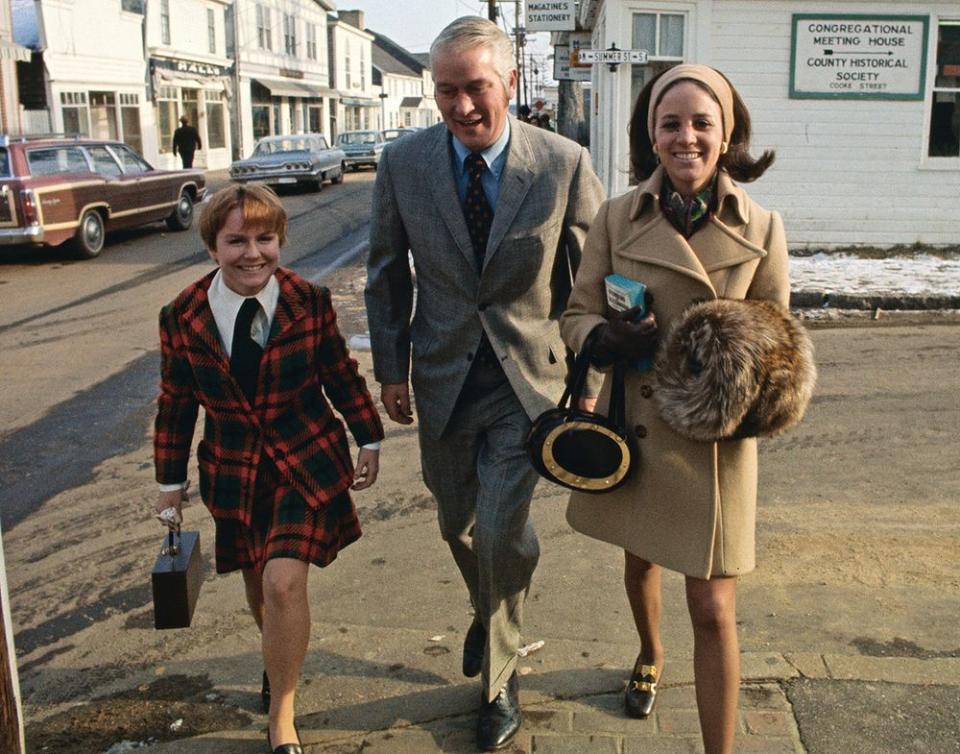
It was Les Leland, a 29-year-old pharmacist and the grand jury foreman of Dukes County, who made the last official attempt to find out what really happened the night Kopechne died.
On March 17, 1970, he wrote a letter to the Chief Justice of the Superior Court asking for permission to reconvene the grand jury in a special session. “There had been a whitewash, a cover-up, and things had been swept under the rug,” he wrote at the time.
The grand jury had a right to investigate any matter it wanted and question anyone it wished.
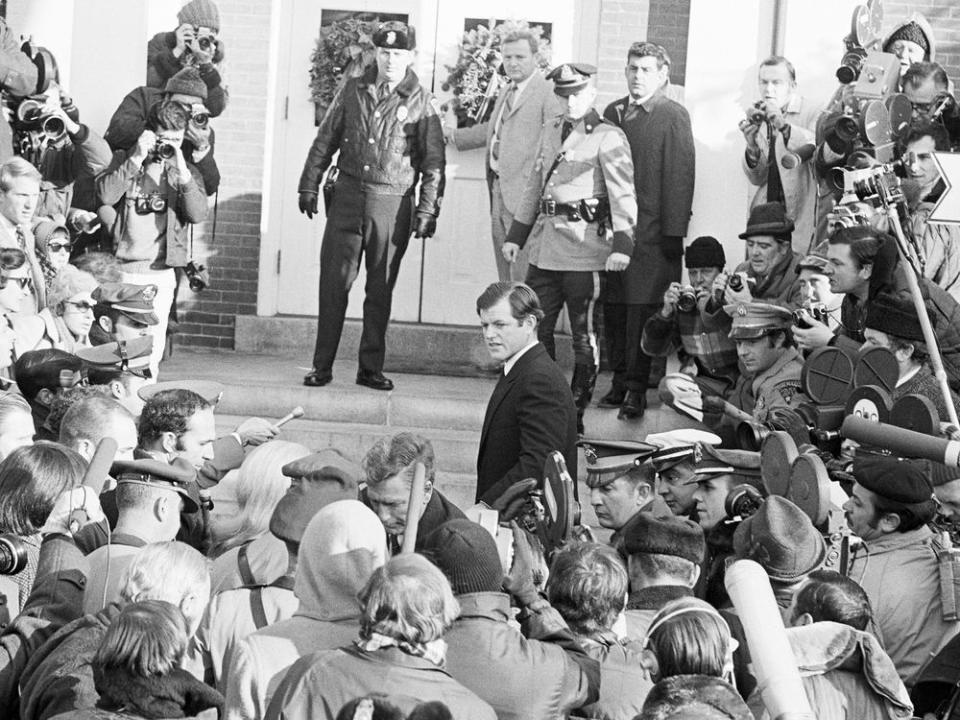
But Leland says he received calls and letters threatening him not to go through with it. In the end, the grand jury was not allowed to question any witnesses who were at the party. And they were rendered powerless.
Nearly 50 years later, Leland is still angry about that.
“Right from the beginning, I felt a connection with Mary Jo. It seems like as things progressed, she was forgotten,” he says now. “Everything was about Ted Kennedy. Everything was about protecting his political career, and Mary Jo was forgotten all the way along. You hardly heard her name mentioned as the days went by. And still to this day, it seems that way.”
For more on the Chappaquiddick scandal, subscribe now to Cover-Up on Apple Podcasts, Spotify, Google Play or wherever podcasts are available. And to continue the discussion, join our Facebook group or reach us directly at coverup@people.com.
